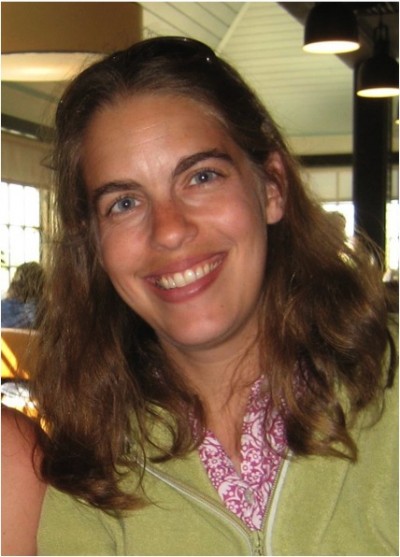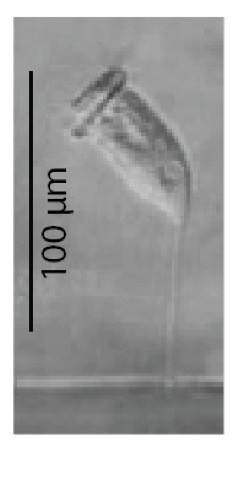Students will explore an emerging branch of science spanning biology, math, physics, chemistry, and more
TACOMA, Wash. – Rachel Pepper, a research fellow at University of California, Berkeley, and a Ph.D. in physics from Harvard University, has been appointed as the first William D. and Flora McCormick Chair in Biophysics at University of Puget Sound. Pepper earned a Bachelor of Arts magna cum laude in biophysics from Brown University and was then named a Marshall Scholar at Cambridge University, where she was awarded a Bachelor of Arts with Honors in physics.
Currently a Miller Institute postdoctoral fellow at UC Berkeley, Pepper has previously taught or supervised research at University of Colorado Boulder, Harvard, and Brown. She brings research interests that span physics, biology, and engineering, and classroom experience with leading-edge science education techniques.
The appointment of Puget Sound’s first chair in the rapidly expanding, interdisciplinary study of biophysics was made possible by a $2 million gift last summer from William and Flora McCormick of Austin, Texas. The gift was made as part of the university’s $125 million One [of a Kind] comprehensive campaign that is supporting scholarships, initiatives, and facilities that prepare students for rewarding careers.
“We are immensely grateful for the generous gift from Bill and Flora McCormick, loyal parents of a Puget Sound alumnus, to endow this position,” said Puget Sound President Ronald R. Thomas. “We are equally proud of the distinguished appointment of Professor Pepper, especially since Dr. McCormick himself has had a brilliant career as a physicist at the University of Texas at Austin.”
Kris Bartanen, dean and academic vice president, added, “Professor Pepper brings with her a rich, interdisciplinary research experience and a clear ability to transfer her own excitement and knowledge about this emerging field to undergraduate students. We welcome her to campus and look forward to working with her to create remarkable new opportunities for students in the classroom and in the research lab.”
Pepper will begin her teaching appointment in fall 2014 as a tenure-line assistant professor and retain her role as the William D. and Flora McCormick Chair in Biophysics throughout her career at Puget Sound.
Initially an enthusiast for biology who discovered a love of physics in her undergraduate years, Pepper is currently pursuing research at the intersection of fluid mechanics and biology. She is working with marine larvae and aquatic filter feeders in conjunction with the Koehl Lab and Environmental Fluid Mechanics group at UC Berkeley.
Born in Arkansas and raised in Denver, Colo., Pepper has been teaching for more than a decade and received two teaching awards while in graduate school at Harvard: the Harold T. White Prize for Excellence in the Teaching of Physics and a Certificate of Distinction in Teaching. From 2009 to 2011, as a senior teaching fellow at University of Colorado Boulder, Pepper researched science learning techniques and helped to transform upper-division physics courses by introducing strategies such as peer instruction, interactive engagement, and conceptual assessments.
“I treat education the same way that I treat the rest of my science,” Pepper explained. “You can gather data on student learning and come to understand what methods work most effectively. I find that students learn best when they are actively grappling with the material, so I am hoping to get students to do this in my courses. I also look forward to involving Puget Sound students in lab work, so they can see biophysics in action.”
Pepper said that encouraging biology students to take some physics courses, and vice versa, often gives them unexpected insights. Some of these they carry with them throughout their careers.
Pepper’s own research with marine larvae is adding to our understanding of how tiny ocean organisms can navigate through turbulent ocean flows to environments where they might thrive. Ultimately such work may lead to new strategies for creating desired communities in aquaculture, such as mussel farms, or lead to new ways to maintain and restore marine communities.
In a separate project, the protozoan Vorticella is serving as a model for understanding the feeding flow around aquatic sessile suspension feeders. These curious-looking organisms—which are anchored to a stream or ocean bed, or to aquatic plants or animals—are an important part of aquatic ecosystems and a vital link in marine food webs. A further line of research Pepper has pursued involves explaining the unexpected behavior of water drops when they hit a solid surface.
“Puget Sound is clearly a vibrant campus and I am greatly looking forward to meeting more of the faculty members and sharing with the students the inspiration that comes from combining the elegance of math and physics with the fascinating systems found in biology,” Pepper said.
Press photos of Rachel Pepper can be downloaded from www.pugetsound.edu/pressphotos.
Tweet this: Rachel Pepper, 1st McCormick biophysics chair @univpugetsound. Aspiring scientists: get interdisciplinary! http://bit.ly/LjgbET
Follow us on Twitter! www.twitter.com/univpugetsound


